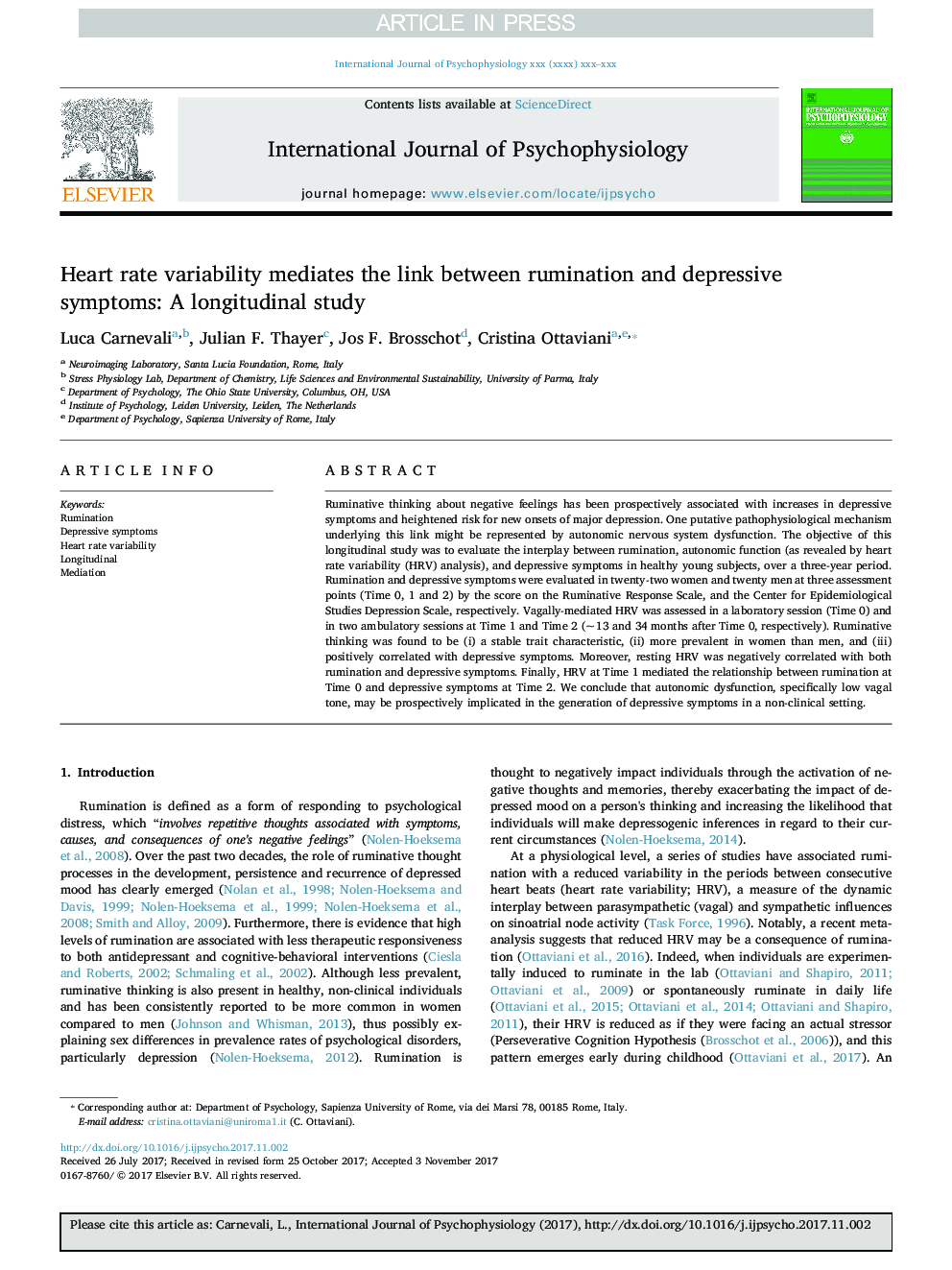| Article ID | Journal | Published Year | Pages | File Type |
|---|---|---|---|---|
| 8947917 | International Journal of Psychophysiology | 2018 | 8 Pages |
Abstract
Ruminative thinking about negative feelings has been prospectively associated with increases in depressive symptoms and heightened risk for new onsets of major depression. One putative pathophysiological mechanism underlying this link might be represented by autonomic nervous system dysfunction. The objective of this longitudinal study was to evaluate the interplay between rumination, autonomic function (as revealed by heart rate variability (HRV) analysis), and depressive symptoms in healthy young subjects, over a three-year period. Rumination and depressive symptoms were evaluated in twenty-two women and twenty men at three assessment points (Time 0, 1 and 2) by the score on the Ruminative Response Scale, and the Center for Epidemiological Studies Depression Scale, respectively. Vagally-mediated HRV was assessed in a laboratory session (Time 0) and in two ambulatory sessions at Time 1 and Time 2 (~Â 13 and 34Â months after Time 0, respectively). Ruminative thinking was found to be (i) a stable trait characteristic, (ii) more prevalent in women than men, and (iii) positively correlated with depressive symptoms. Moreover, resting HRV was negatively correlated with both rumination and depressive symptoms. Finally, HRV at Time 1 mediated the relationship between rumination at Time 0 and depressive symptoms at Time 2. We conclude that autonomic dysfunction, specifically low vagal tone, may be prospectively implicated in the generation of depressive symptoms in a non-clinical setting.
Related Topics
Life Sciences
Neuroscience
Behavioral Neuroscience
Authors
Luca Carnevali, Julian F. Thayer, Jos F. Brosschot, Cristina Ottaviani,
